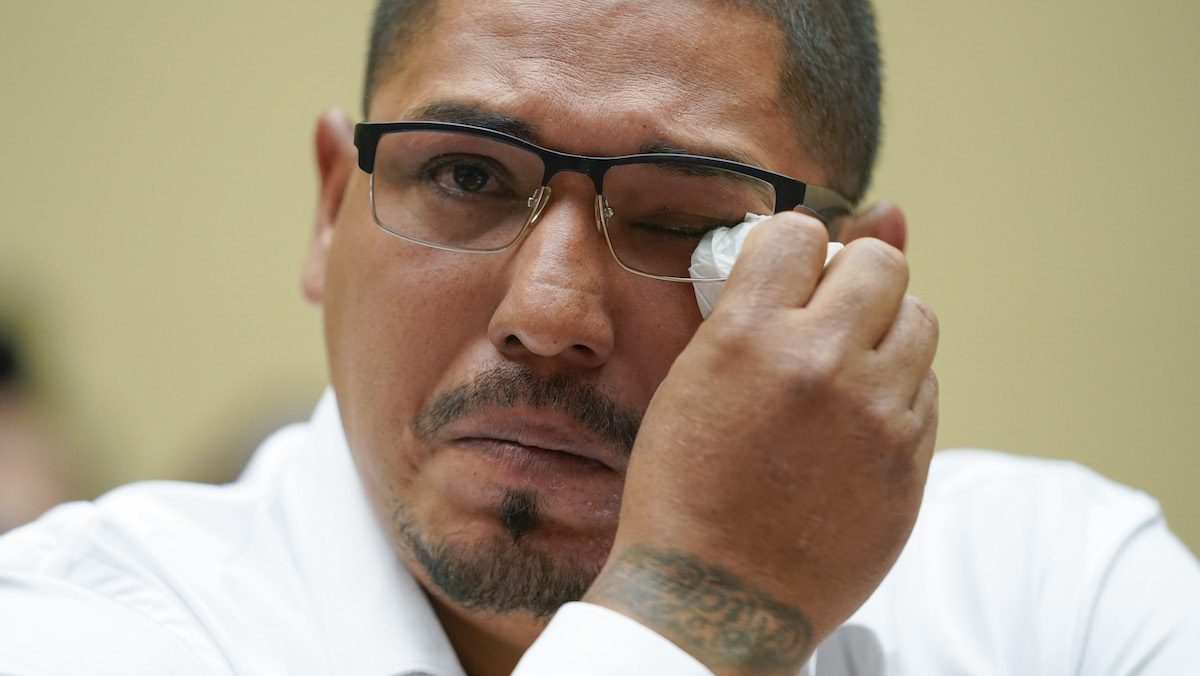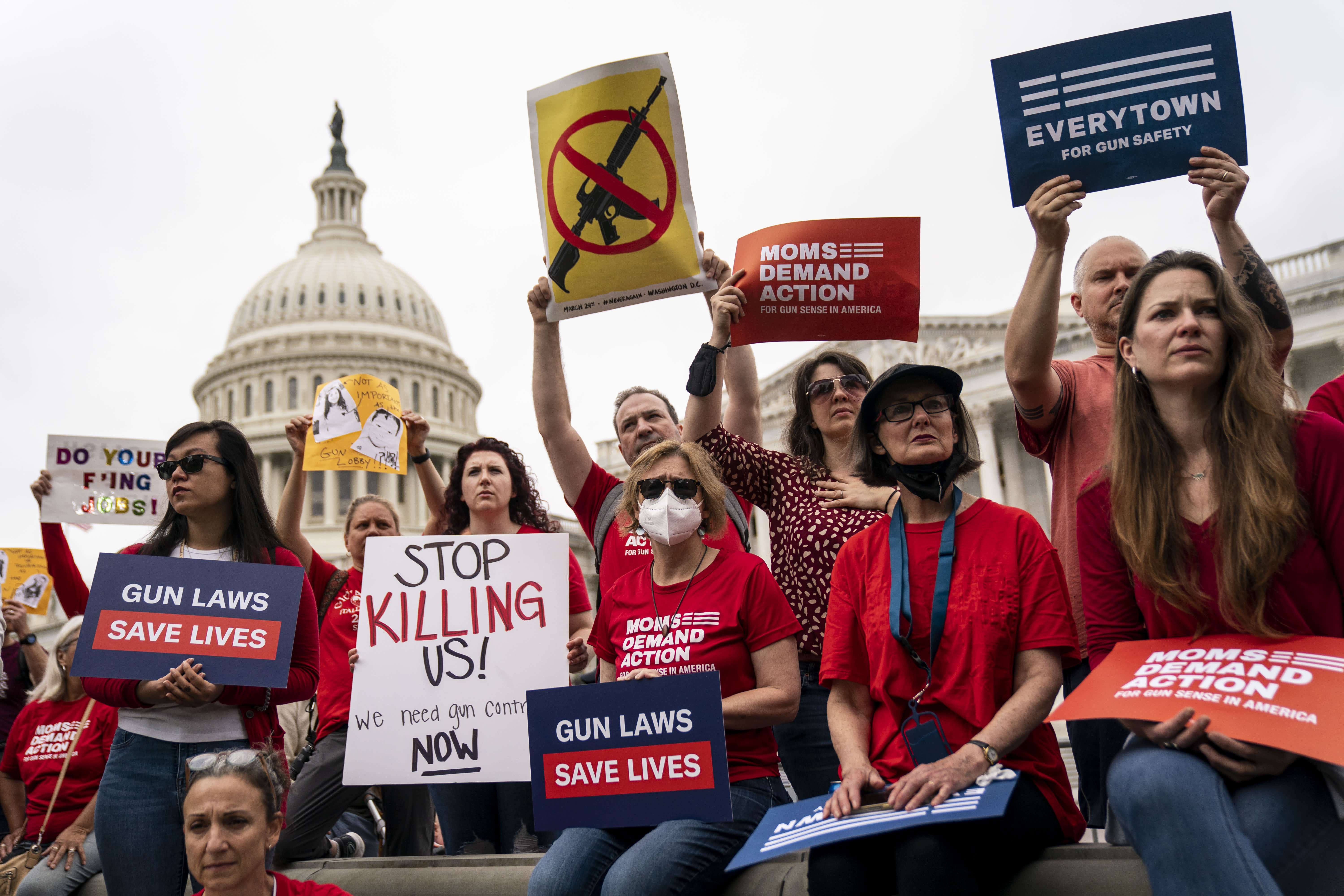
The white gunman who killed 10 Black people in a racist attack at a Buffalo supermarket was charged Wednesday with federal hate crimes and could face the death penalty.
The criminal complaint filed Wednesday against Payton Gendron coincided with a visit to Buffalo by Attorney General Merrick Garland. The attorney general was expected to address the federal charges and meet with the families of the people who were killed.
Garland placed a bouquet of white flowers tied with a yellow ribbon at a memorial to the victims outside the store, which has been shuttered and undergoing renovations since the attack.
The suspect was already facing a mandatory life sentence without parole if convicted on previously filed state charges in the May 14 rampage.
The Hurricane season is on. Our meteorologists are ready. Sign up for the NBC 6 Weather newsletter to get the latest forecast in your inbox.
The attack, at Tops Friendly Market, also left three survivors — one Black, two white. Ballistics evidence indicated that the suspect fired approximately 60 shots during the attack, according to an affidavit filed with the criminal complaint.
The suspect's radical, racist worldview and extensive preparation for the attack were laid out in documents he apparently authored and posted online shortly before authorities say he started shooting.
FBI agents executing a search warrant at the suspect's home the day after the shooting found a note in which he apologized to his family for the shooting and stated that he “had to commit this attack” because he cares “for the future of the White race,” according to an affidavit filed with the criminal complaint.
The suspect signed the note and addressed it to his family, the affidavit said.
Agents at the Conklin, New York home also found a receipt for a candy bar purchased from the supermarket on March 8, the day the suspect said in an online diary he went to scout out the store, as well as hand drawn sketches of the store’s layout, the affidavit said.
The affidavit also includes detailed accounts of the suspect’s plot to attack the store, which he documented in detail in an online diary, and the attack itself, which he live streamed on social media.
In his writings, the suspect embraced a baseless conspiracy theory about a plot to diminish white Americans’ power and “replace” them with people of color, through immigration and other means.
The posts detail months of reconnaissance, demographic research and shooting practice for a bloodbath aimed at scaring everyone who isn’t white and Christian into leaving the country.
The suspect drove more than 200 miles from his home in a nearly all-white town near the New York-Pennsylvania border to a predominantly Black part of Buffalo. There, authorities say, he mowed down shoppers and workers using an AR-15-style rifle, wearing body armor to protect himself and livestreaming the carnage from a helmet-mounted camera.
The suspect's rifle had writings on it, including the names of other people who’ve committed mass shootings, racial slurs and statements such as, “Here’s your reparations!", and a reference to the replacement theory, the affidavit said.
The 18-year-old surrendered to police as he exited the supermarket.
He has pleaded not guilty to a state domestic terrorism charge, including hate-motivated domestic terrorism and murder.
According to the online documents attributed to the suspect, he had scouted out the supermarket in March, drawing maps and even counting up the number of Black people he saw there.
Federal authorities had said they were considering hate crime charges in the killings, which compounded the unabating toll of gun violence in the United States.
Ten days after the attack in Buffalo, another 18-year-old with a semi-automatic rifle opened fire at a Uvalde, Texas elementary school, killing 19 children and two teachers.
Soon after, New York Gov. Kathy Hochul signed 10 public safety-related bills, including one prohibiting New Yorkers under age 21 from buying semi-automatic rifles and another that revised the state’s “red flag” law, which allows courts to temporarily take away guns from people who might be a threat to themselves or others.
The U.S. Senate followed on June 12 with a bipartisan agreement on more modest federal gun curbs and stepped-up efforts to improve school safety and mental health programs.
The case is likely to present a quandary for Garland, who has vowed to aggressively prioritize the prosecutions of civil rights cases but also instituted a moratorium on federal executions last year after an unprecedented run of capital punishment at the end of the Trump administration.
The moratorium put in place in July 2021 halts the Bureau of Prisons from carrying out any executions. But the memo does not prohibit federal prosecutors from seeking the death penalty, a decision that ultimately will fall to Garland. The Biden administration has previously asked the U.S. Supreme Court to reinstate the Boston Marathon bomber’s original death sentence.
The executions have been halted as the Justice Department conducts a review of its policies and procedures for capital punishment. The review, which is ongoing, comes after 13 people were executed at the federal prison complex in Terre Haute, Indiana between July 2020 and January 2021.
President Joe Biden has said he opposes the death penalty and his team vowed that he would take action to stop its use while in office.



